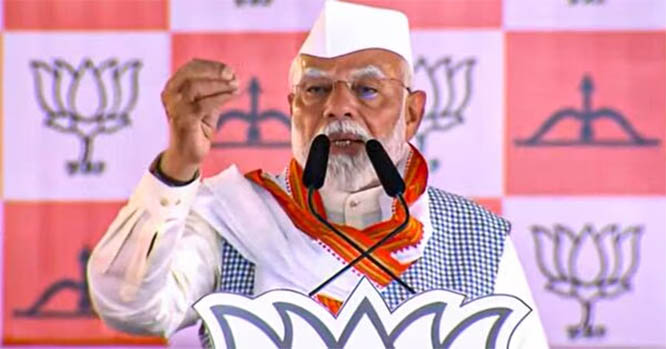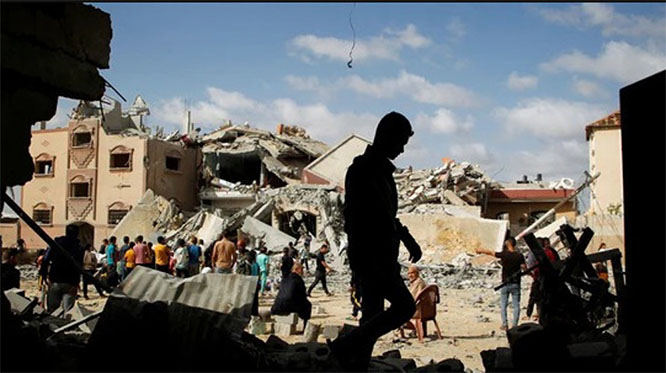New Delhi, Aug 7: The Congress Working Committee late Tuesday deplored the "unilateral, brazen and totally undemocratic" manner in which provisions of Article 370 of the Constitution was abrogated and the state of Jammu and Kashmir was bifurcated by the government into two Union Territories.

At a meeting of the Congress's highest decision-making body, the party accused the BJP of violating constitutional law, the states' rights, parliamentary procedure and democratic governance.
Party sources said various party leaders made their points and the leadership respected the sentiments expressed by each of them. Rahul Gandhi said the party would stand with its ideology and opposed the manner in which the government went ahead with the decision against all democratic and constitutional norms, the sources said.
Gandhi, the sources added, pointed out that the party respected the sentiments of all, including those who have expressed divergent views as per the sentiment of people in their respective states and areas, but the party had to go by its ideological stand.
Priyanka Gandhi also expressed similar views.
The meeting, chaired by Rahul Gandhi, was attended by top party leaders Sonia Gandhi, Manmohan Singh, A K Antony, Ahmed Patel, Ghulam Nabi Azad, P Chidambaram besides Priyanka Gandhi, and they deliberated on the party's strategy going forward on J&K.
Former state chief minister Ghulam Nabi Azad explained the entire Kashmir situation and the aftermath of the government's decision.
The meeting of the CWC came after the party took a stand against the government action, while several Congress leaders such as Jyotiraditya Scindia and Janardan Dwivedi struck a divergent view and supported the Centre's action.
It was held soon after Parliament approved the government's action of revoking the special status of Jammu and Kashmir and bifurcated the border state into two Union Territories. The Congress has strongly opposed the move in both houses of Parliament and termed the government action as unconstitutional and undemocratic.
While some leaders expressed divergent views on the issue at the meeting, the resolution adopted at the meeting was unanimous.
"The CWC deplores the unilateral, brazen and totally undemocratic manner in which Article 370 of the Constitution was abrogated and the State of Jammu and Kashmir was dismembered by misinterpreting the provisions of the Constitution," the CWC resolution stated.
Reading out the resolution, Chidambaram said, "Every principle of Constitutional law, States’ rights, Parliamentary procedure and democratic governance was violated."
"The CWC strongly reaffirmed the consistent and stated position of the Indian National Congress that J&K, including the areas under the illegal occupation of Pakistan and the part ceded by it to China, are integral part of the Republic of India.
"The integration of J&K with India is final and irrevocable. CWC firmly asserted that all issues pertaining to J&K are internal matters of India and no outside interference will be tolerated," the CWC resolved.
The party reiterated its pledge to stand with the people of Jammu, Kashmir and Ladakh and to fight BJP's "divisive and diabolical". The party also urged the people of Jammu and Kashmir to maintain peace and calm.
The resolution further stated that Article 370 is the Constitutional recognition of the terms of the Instrument of Accession between the State of Jammu and Kashmir and India.
"It deserved to be honoured until it was amended, after consultation with all sections of the people, and strictly in accordance with the Constitution of India," it said.
The CWC said what the BJP government accomplished yesterday in the Rajya Sabha and today in the Lok Sabha has "grave implications" going well beyond J&K and calls into question the very idea of India being a Union of States.
"Jammu and Kashmir acceded to India as one State and no government has the power to change its status or divide it or reduce any part of it to a Union Territory," the party said.
The Indian National Congress pledges to stand with the people of Jammu, Kashmir and Ladakh and to fight the BJP and its divisive and diabolical agenda with every power in its hands. We urge the people of J&K to maintain peace and calm.
Congress leader in Lok Sabha Adhir Ranjan Chowdhury, who earlier in the day stoked controversy as he sought to know from the government whether Jammu and Kashmir was an internal matter or a bilateral issue, also attended the meeting.
However, just ahead of the meeting, Scindia said he supported the move on Jammu and Kashmir and Ladakh and the state's full integration into the Union of India, adding that it was in the interest of the country.
"I support the move on #JammuAndKashmir & #Ladakh and its full integration into union of India," he tweeted.
"Would have been better if constitutional process had been followed. No questions could have been raised then. Nevertheless, this is in our country's interest and I support this," he said.
While the meeting was on, senior Congress leader Anand Sharma put out a tweet saying Jammu and Kashmir joined the Indian Union as a state.
"BJP govt ill thought decision of dividing the state and downgrading the strategically sensitive state is a first in history and changes geography and humiliates the people of Jammu and Kashmir," he said.
The CWC was also expected to pass a resolution on the situation arising out of the government's move on Jammu and Kashmir.








Comments
Add new comment